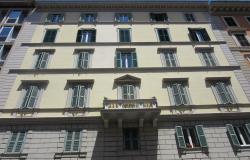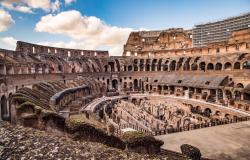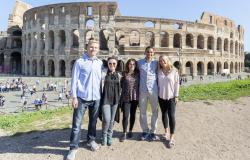Italian President Creates Four New Senators For Life

In the picture: Claudio Abbado
words by Carol King
Italian President Giorgio Napolitano has created four new Senators for Life.
As head of State, the Italian President can make individuals who have shown extraordinary social, scientific or artistic merit Senators for life. Recipients gain lifetime seats in Italy’s Upper House, the Senate. The new senators are: architect Renzo Piano, Nobel laureate and particle physicist Carlo Rubbia, music conductor Claudio Abbado, and pharmacology professor and stem-cell expert Elena Cattaneo.
The 75-year-old world-renowned architect Piano has worked on the designs of various landmark buildings, such as London’s Shard skyscraper, Paris’ Georges Pompidou Centre in Paris and the New York Times building in Manhattan. He has been awarded many of the architectural world’s most coveted prizes, including the Pritzker Prize, the Kyoto Prize and the Royal Institute of British Architects Gold Medal. Since 1994, Piano has been a UNESCO Goodwill Ambassador for cities. In 2004, he founded the Renzo Piano Foundation, a non-profit organisation for supporting young architects based in Genoa.
A particle physicist and inventor, the 79-year-old Rubbia shared the Nobel Prize in Physics in 1984 for the discovery of the W and Z particles at the European Organisation for Nuclear Research, CERN. He holds 32 honorary degrees in addition to a doctorate from New York’s Columbia University and undergraduate degree from the Scuola Normale of Pisa. During his career, he has been Higgins Professor of Physics at Harvard University, principal Scientific Adviser at the Centro de Investigaciones Energéticas, Medioambientales y Tecnológicas in Spain, and President of Italy’s Agenzia nazionale per le nuove tecnologie, l’energia e lo sviluppo economico sostenibile (National Agency for New Technologies, Energy and Sustainable Economic Development). Rubbia’s current research activities concentrate on the problem of energy supply for the future, focusing on the development of new technologies for renewable energy sources.
Eighty-year-old Abbado has conducted many of the world’s top orchestras. He has served as music director at Milan’s La Scala opera house, principal conductor of the London Symphony Orchestra, music director of the Vienna State Opera, principal conductor of the Berlin Philharmonic and principal guest conductor of the Chicago Symphony Orchestra. Abbado has received numerous honours, including two Grammy awards. He has promoted musical talent by founding orchestras, including the European Youth Orchestra, the Chamber Orchestra of Europe and the Mozart Orchestra.
Fifty-year-old Elena Cattaneo graduated in pharmacy and then moved to the USA, where she specialised at the Massachusetts Institute of Technology before starting her academic career at the University of Milan. She founded and now directs the university’s laboratory for stem-cell research in neurodegenerative diseases, studying Huntington’s disease. She leads the NeuroStemcell European Consortium for Stem Cell Therapy in Neurodegenerative Diseases, which is a European Union funded project formed to develop stem-cell based therapies for Parkinson’s disease and Huntington’s disease towards clinical application.
Location
You may also be interested in...
Latest property in Rome
65 m²
1 Bedrooms
165000
3 Bedrooms
1450000
1 Bedrooms
2000
260 m²
3 Bedrooms
0
3 Bedrooms
1300000








